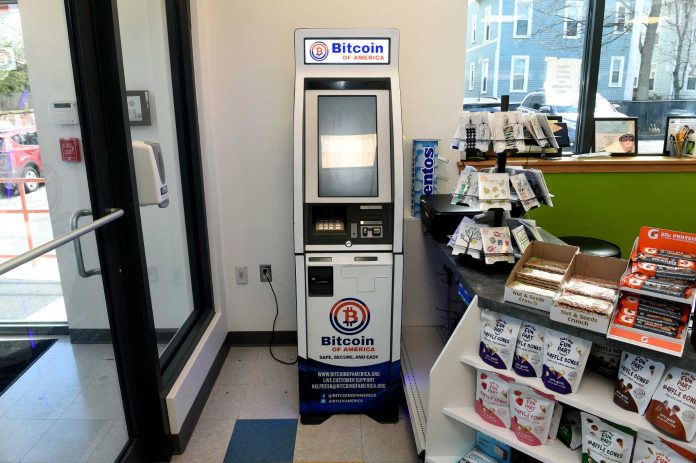Hartford – Bitcoin of America will be winding down its operations in Connecticut after a settlement with the state, and tighter regulations may be coming for virtual assets, officials say.
In a release, the Connecticut Department of Banking said it has reached a settlement with Bitcoin of America through a consent order agreed to by both parties.
“Bitcoin of America had been operating virtual currency kiosks in Connecticut without obtaining the proper license,” it said. “Virtual currency kiosks allow consumers to purchase virtual currency with cash. Four Connecticut consumers who patronized these kiosks fell victim to scams, losing tens of thousands of dollars.”
Scams involving cryptocurrency and other virtual assets have been the subject of concerns from state officials and law enforcement. Officials say the alternate form of money is ripe for scams that have resulted in Connecticut residents losing millions of dollars.
In fact, legislation making its way through the state capital aims to put more regulations and consumer protections in place.
The bill would result in virtual kiosks — sometimes called crypto ATMs — located at gas stations and convenience stores throughout the state, being required to display in capital letters and prominent typeface the potential risks involved in the volatile market: “Warning: Losses due to fraudulent or accidental transactions may not be recoverable and transactions in virtual currency are irreversible.”
As a result of the consent order, the Department of Banking said, Bitcoin of America made restitution to the consumers totaling $86,000. Following a criminal indictment, it said, Bitcoin of America is winding down operations in Connecticut.
“This case highlights the need to be cautious when using virtual currency kiosks,” Commissioner Jorge Perez said in the release. “Scammers are preying upon consumer’s vulnerabilities and tricking them into depositing cash into kiosks, which can be found throughout the state. The Department is taking steps to be sure that the owners and operators of these kiosk are properly licensed and adhere to the law.”
In this case, the Department of Banking said, it became aware of four Connecticut consumers who lost money to scammers through kiosks operated by Bitcoin of America. As the kiosks transferred the consumers’ funds to third parties, it said, Bitcoin of America was required to be licensed as a money transmitter.
The Department of Banking said the consumers fell victim to scammers who convinced them they were from legitimate companies such as banks, electrical and internet supply companies. It said the scammers directed the consumers to deposit cash into these the kiosks with a QR code, provided by the scammer, to supposedly safeguard their money.
“Unbeknownst to the consumer, they were depositing the cash into the kiosk, purchasing virtual currency which was then transmitted to the scammer’s virtual wallet,” it said. “This resulted in the consumer losing their funds.”
Speaking to the legislation, the Department of Banking said it and the Connecticut State Police have submitted the legislation. It said the bill, if passed, would allow the banking commissioner to adopt regulations around virtual currency and other digital assets.
“In addition, it would explicitly require that virtual currency kiosks be licensed as money transmitters in the state, giving the commissioner jurisdiction over these machines and its operators,” it said. “The bill would require a clear set of consumer disclosures to be given on screen, which the consumer must affirmatively agree to. It also would provide additional protections for first-time virtual currency kiosk users.”
In a separate release, CSP, the Department of Banking, the Connecticut Attorney General’s Office and the Department of Consumer Protection said scammers often convince unwitting consumers to send payments via gift cards and money transfers, and are now using cryptocurrency. They said tend to criminals create a false sense of urgency and trick victims into withdrawing cash from their bank account.
“The scammer then directs the consumer to deposit the cash into a virtual currency kiosk,” they said. “The consumer purchases the virtual currency which is then sent to the scammer’s crypto wallet.”
The departments said the types of scams can vary from criminals posing as utility companies and asking for money to scammers finding people online and developing a faux-relationship with them overtime. They said it is important for consumers to keep in mind that only scammers demand advance payment in cryptocurrency, gift cards or money transfers.
“No legitimate business will request advance payment in cryptocurrency, including through a virtual currency kiosk,” they said. “Cryptocurrency payments made to scammers via virtual currency kiosks are typically not reversible. Once sent, the money is gone.”

